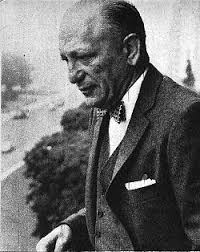Julio Korn
Country:
Argentina
Company:
Entertainment
His father Herman Korn and his mother Ana Zilberkvit was from Chisinäu.
Until radio and cinema became popular in the country, entertainment maga- zines focused mainly on theatrical activity and, in many cases, included the text of works already released. In parallel, magazines appeared that reproduced the lyrics of well-known songs. In the mid-1920s publication Modern song, a weekly dedicated to transcribing letters of tangos, which came to have a print run of 40,000 copies; He had
a supplement called Radiolandiaand in 1934 to take advantage of the diffusion of the radio, Korn recast the magazine and gave it the name of the supplement.
Korn, wanted its publications to entertain andinterest in massive terms, so the magazine kept track of the sentimental vicissitudes of the Argentine stars of the enter- tainment world (film, radio and, later, television). Around 1936, a few months after the death of Carlos Gardel, Radiolandia almost tripled its usual circulation of 150 thou-
sand copies when ti began to publish serially the story of the singer told by his mother, exploiting the sentimental - and unpublished - side of the star. In 1965 its six weekly publications, Radiolandia, Anteojito, Antena, TV Guía, Goles and Vosotras totaled a
circulation of 7 million copies per month and were in the top positions in the market. At the beginning of the 1960s, one of the investors of Channel 9. He was amember of the board of directors of Banco Mercantil, Odol Laboratories, Inmobiliaria Korn.
